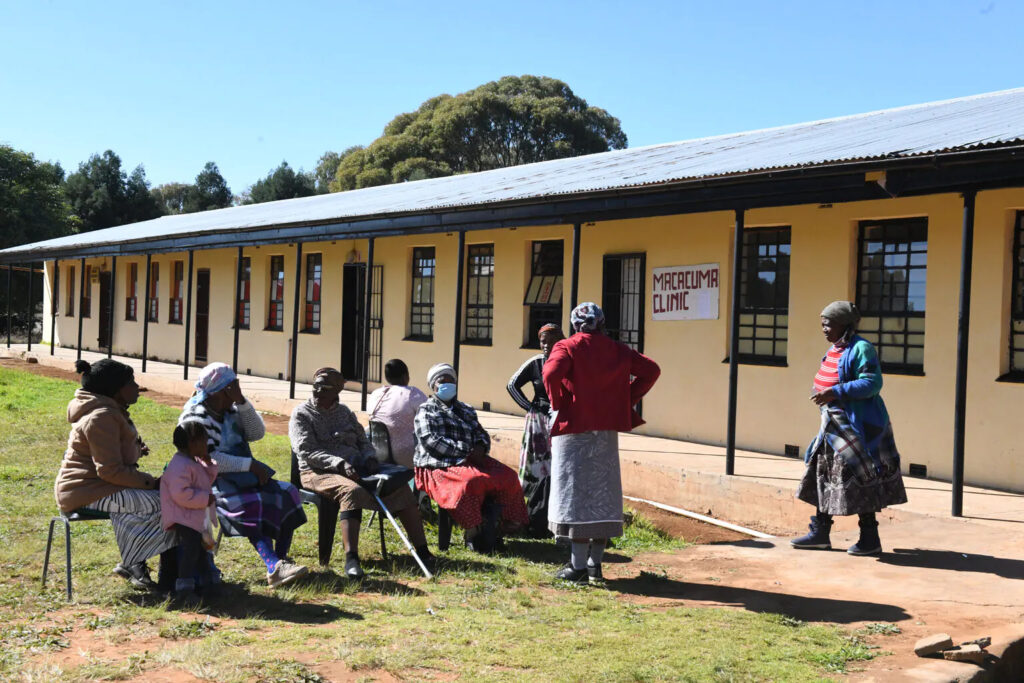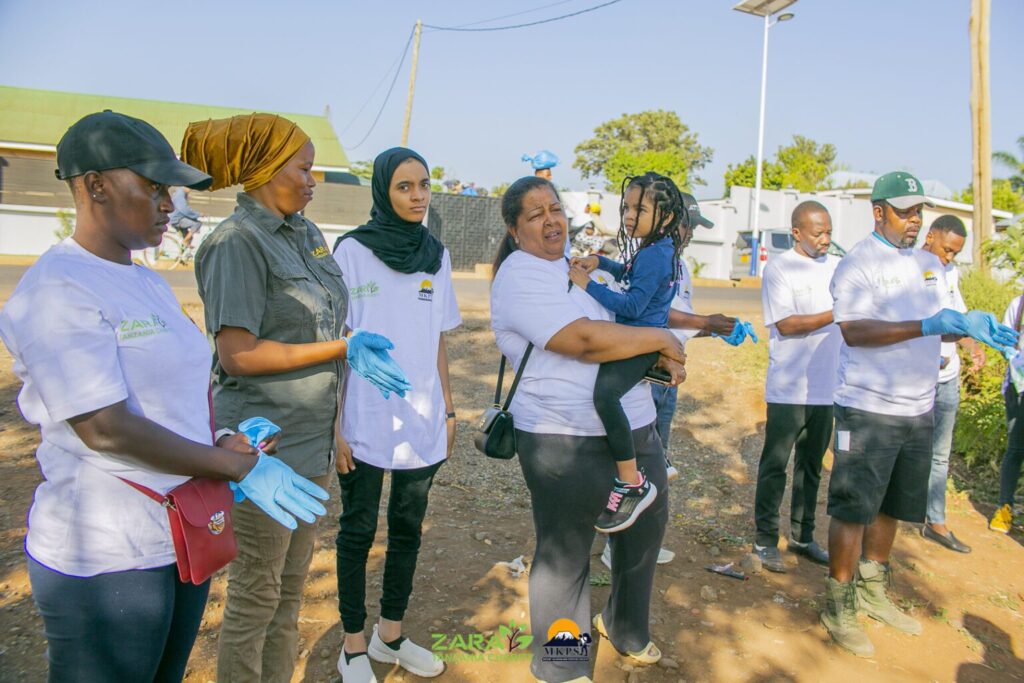Tanzania, a nation of stunning landscapes and vibrant communities, faces profound healthcare hurdles that hinder access to essential services, particularly in rural areas where over 75% of the population resides. With a doctor-to-patient ratio of approximately 1:20,000—far below the World Health Organization’s (WHO) recommended 1:10,000—clinics and hospitals are chronically understaffed, leading to delayed treatments, misdiagnoses, and preventable deaths. Limited equipment, such as outdated diagnostic tools or insufficient supplies for surgeries and vaccinations, compounds these issues, especially for maternal and child health. In regions like Kigoma, maternal mortality was once among the highest in the country, with rates exceeding 500 deaths per 100,000 live births in 2016. Disease prevention efforts, including HIV/AIDS management and malaria control, are also strained, leaving vulnerable populations at risk.
Enter medical volunteering programs: a vital lifeline bridging these gaps. Organizations like the Foundation for African Medicine and Education (FAME) and International Volunteer HQ (IVHQ) deploy skilled professionals and students to rural hospitals and outreach campaigns, providing hands-on support that eases the burden on local staff and enhances care quality. These initiatives not only deliver immediate relief but also build long-term capacity through training and knowledge exchange, fostering sustainable improvements in Tanzania’s healthcare landscape.

The State of Tanzania’s Healthcare System
Tanzania’s public health system is decentralized, with district hospitals, health centers, and dispensaries serving as primary care points. Yet, systemic challenges persist. Only 26% of doctors serve rural areas, despite the majority of the population living there, resulting in overburdened facilities where a single nurse might manage over 50 maternity patients alone. Equipment shortages are rampant—many clinics lack basic ultrasound machines or reliable electricity for incubators—exacerbating issues like neonatal care and emergency obstetrics.
Maternal health exemplifies these struggles: In 2016, Tanzania’s maternal mortality ratio stood at 556 per 100,000 live births, driven by home deliveries, late antenatal care, and inadequate emergency services. Infectious diseases, including malaria (which affects 96% of the population) and HIV (prevalent in 4.6% of adults), further strain resources, with prevention programs underfunded and understaffed. Community health workers (CHWs) play a crucial role, but without support, their efforts fall short.
Bridging the Gaps: The Role of Medical Volunteers
Medical volunteering programs, such as those offered by Volunteering Solutions and Go Volunteer Africa, place qualified doctors, nurses, and students in under-resourced facilities across Arusha, Moshi, and Zanzibar. Volunteers assist in daily operations—shadowing local staff, conducting health checks, and participating in outreach—while adhering to ethical guidelines that prioritize supervision and cultural sensitivity. For instance, IVHQ’s program in Arusha involves mobile campaigns in villages, delivering free check-ups and vaccinations to remote families who might otherwise travel days for care.
These efforts directly address staffing shortages: A volunteer nurse might handle wound dressings or IV administrations, freeing Tanzanian doctors for complex cases. Programs like FAME’s in Karatu, which sees over 27,000 patient visits annually, emphasize skill-sharing, where Western-trained professionals train locals on protocols for postpartum hemorrhage or neonatal resuscitation. This not only improves immediate outcomes but also empowers the workforce for the future.
Stories from the Frontlines: Volunteers in Action
In Moshi, a bustling town near Mount Kilimanjaro, volunteer Sarah Thompson (a third-year nursing student from the UK) spent four weeks at a local clinic in 2024. “The clinic was overwhelmed—patients lined up from dawn, many walking miles with fevers or chronic wounds,” she shared. Sarah assisted in triaging pediatric cases, teaching mothers about malaria prevention using bed nets, and even helped deliver a healthy baby during a midnight shift. Her presence allowed the sole on-duty nurse to focus on emergencies, turning a chaotic ward into a more organized space. “One little boy with severe dehydration smiled for the first time after his IV drip; that moment made every long day worth it,” Sarah recounted.
At FAME Hospital in rural Karatu, Dr. Elena Ramirez, a U.S. obstetrician, volunteered for two months in 2023. Amid equipment shortages, she improvised with solar-powered monitors for fetal heart rates during deliveries. “We saved a mother from eclampsia by quick team coordination—something the local staff now replicates independently,” Dr. Ramirez noted. Her work included outreach to Maasai communities, screening for hypertension and educating on prenatal nutrition, directly preventing complications in high-risk pregnancies. These stories highlight the human impact: Volunteers don’t just treat; they inspire resilience.
In a recent X post, Tanzanian health advocate Daniel Saideya shared photos from a volunteer-led medical camp in Dodoma, where free services reached hundreds. “Day one of volunteering at the medical camp… providing free medical services to everyone,” he wrote, capturing the joy of accessible care in action.

Tangible Impacts: Improved Maternal Health and Disease Prevention
Volunteers amplify broader health gains. In maternal care, programs like the CDC-supported Maternal and Reproductive Health in Tanzania have upgraded facilities and trained providers, averting an estimated 2,100 deaths in Kigoma from 2011–2018 through better obstetric services. Volunteers contribute by leading antenatal workshops and assisting in deliveries, contributing to an 80% national drop in maternal mortality to 104 per 100,000 by 2022.
For disease prevention, outreach campaigns—often volunteer-driven—boost vaccination rates and HIV testing. CHW-led efforts, bolstered by volunteers, increased antenatal attendance by 20% in Dar es Salaam trials, reducing mother-to-child transmission risks. In rural settings, volunteers distribute nets and conduct screenings, curbing malaria’s toll, which claims thousands of lives yearly.
| Impact Area | Key Contributions of Volunteers | Measurable Outcomes |
|---|---|---|
| Maternal Health | Assisting deliveries, prenatal education | 80% reduction in MMR (2016–2022); 2,100 deaths averted in Kigoma |
| Disease Prevention | Outreach for vaccinations, HIV testing | 20% increase in ANC visits; improved malaria/HIV management |
| Staff Support | Hands-on aid, training locals | Reduced burnout; enhanced facility capacity in rural areas |
A Professional’s Perspective: Why Volunteering Matters
Dr. Michael Krychman, a U.S. physician who volunteered at FAME, reflects: “In rural Tanzania, medicine strips back to essentials—clinical intuition over gadgets. Mentoring local teams on postpartum care was rewarding; they saved lives post-departure using our shared techniques.” He highlights personal growth: “It reignited my passion, reminding me why I became a doctor—impact over income.” Similarly, Tanzanian nurse Winnie, praised in a community post for solo-manning a maternity ward, embodies the quiet heroism volunteers support: “One volunteer meant I could breathe, focus on the mothers.”
Professionals gain cultural competence, resume-boosting experience, and a profound sense of purpose, all while addressing global inequities.
Related Blogs and Resources
Dive deeper into the world of medical volunteering in Tanzania with these insightful reads from partner organizations like IVHQ and FAME. These articles share personal stories, program insights, and tips to inspire your own journey.
From International Volunteer HQ (IVHQ) Blog:
- Best Medical Mission Trips 2025 & 2026: Explore top global opportunities, including hands-on roles in Tanzanian clinics for basic patient care and healthcare campaigns.
- Top Medical Internship Opportunities Abroad in 2025 & 2026: Discover internships in Tanzania covering general medicine, midwifery, and more, ideal for students seeking diverse experiences.
- Affordable Medical Electives Abroad: Learn how to fulfill medical elective requirements in Tanzania through accessible programs in clinics and hospitals.
- Best Nurse Volunteer Abroad Programs For 2025 & 2026: Get guidance on nursing roles in Tanzania, from hospitals to special education schools and elderly care.
- My Experience As A Medical Volunteer Abroad: A personal reflection on the transformative power of medical volunteering, with lessons applicable to Tanzania placements.
- Top Medical Volunteer Abroad Opportunities: Highlights introductory care and campaigns in Tanzania, perfect for group trips and beginners.
From FAME Africa Journal:
- International Volunteer Day 2021: Celebrating the vital role of volunteers in FAME’s mission, with stories of mutual learning between Tanzanian teams and international experts.
- Volunteer Reflection: Nurse Barbara Dehn: A seasoned nurse shares seven years of volunteering at FAME, focusing on women’s health and community impact.
- Inspiring the Next Generation of Healthcare Providers: How Tanzanian trainees and volunteers collaborate to build future healthcare leaders in rural settings.
- Education is Part of FAME’s Name: Insights into weekly training and volunteer-led sessions that strengthen local medical teams.
These resources offer real-world perspectives and practical advice to complement your exploration of volunteering in Tanzania.
Join the Mission: Your Skills Can Change Lives
If you’re a medical student, nurse, or doctor passionate about global health, Tanzania awaits. Programs like our Medical Volunteering page offer placements from 1–12 weeks, with costs covering accommodations and support (starting at $300/week). No prior volunteering required—just a commitment to learning and humility.
Ready to apply? Visit our application form today. Whether shadowing in Moshi or outreaching in Arusha, your expertise could prevent a crisis or deliver a healthy newborn. In Tanzania’s healthcare story, volunteers aren’t extras—they’re the turning point. What difference will you make?